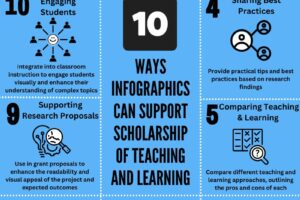ISSOTL and Advocacy — A Few Options
In December, ISSOTL President Joelle Fanghanel wrote, in our first blog, that advocacy ought to be “an important focus” for our organization. ISSOTL’s Advocacy Committee is exploring what that means for us as an organization. We have several options.
Most of us are already advocates for the value of SoTL itself. Through our work with colleagues as well as our publications and presentations, we encourage others to explore ideas from SoTL research and pursue their own questions about students’ learning. To say that ISSOTL embraces this version of advocacy is almost redundant. This is why we exist.
ISSOTL could also take stands on key issues as an organization, by adopting resolutions or issuing white papers. Some academic organizations have established processes to allow members to propose and vote on resolutions, or they appoint ad hoc committees to prepare position statements. To give just one example, the Conference on College Composition and Communication regularly issues position statements on relevant issues, such as principles for online instructions or the treatment of adjunct faculty. ISSOTL could do something similar. For example, the growing body of SoTL work that engages students as co-investigators could provide the basis for a white paper on including students in campus decision making. Given our size and diversity, identifying positions with broad support could be difficult, and while position statements from academic organizations often generate good discussions, they rarely influence those in power.
A third approach might work better for us: encouraging members to use their scholarly expertise as a resource in individual advocacy. As individuals, we can (and many of us already do) act as advocates within our departments and institutions, but we can also reach out to wider audiences, including policy makers and the media. This requires looking beyond our own classrooms and thinking about the broader insights of our research, but it also means thinking about the broader view as we frame our research questions. We might begin simply by framing questions that have potential to generate insights and evidence relevant to larger policy debates.
The Advocacy Committee has begun discussing what we believe ISSOTL should advocate for and how we can help members become better advocates for real improvements to higher education. If you’re interested in joining those discussions, contact me or Jennifer Meta Robinson. Better yet, join the discussion right now by commenting on this blog. What do you think ISSOTL should advocate for? What do you need to be a strong advocate?
Sherry Linkon




